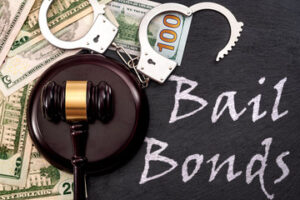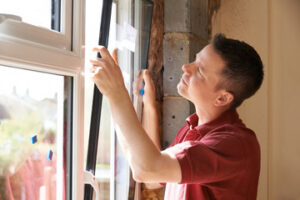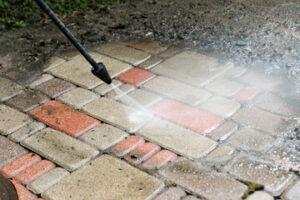Bondsman is a professional who acts as a surety for the release of an accused defendant. This allows the legal process to move forward efficiently and helps reduce jail overcrowding.

A bond is an agreement that three parties enter into to guarantee the fulfillment of an obligation or promise. The defendant, the obligee (court), and the surety (bail bondsman) are involved in this arrangement. The defendant posts a sum of money, known as the “bond amount,” with the bail bondsman in exchange for the bondman agreeing to pay the court an unspecified amount of compensation in case the defendant fails to fulfill the terms of conditional release from custody.
The bail amount is set by a judge at the time of arraignment or at the bail hearing. This amount is based on several factors, including the severity of the charges and a defendant’s flight risk. If a person can afford to pay the full bail amount, they are typically released directly from jail after arraignment. However, many people cannot afford the entire bail amount and are held in jail until their bond can be paid.
Bail is available through a variety of mechanisms, including cash, percentage bonds, and ROR bail (“release on one’s own recognizance”). Most individuals choose to use a bail bondsman when posting bail because the process saves them time, money, and allows them to maintain professional and family obligations while out of custody.
Typically, the accused or their representative pays the full bail amount to the courts in order to be released from jail. A bond agent can take on the full bail amount in exchange for a non-refundable fee, which is often 10 to 20 percent of the total bail amount. The bondsman is then responsible for monitoring the defendant’s compliance with the conditions of their release, which include attending all court dates and refraining from criminal activity.
Bondsmen who issue immigration bonds are generally required to take on a higher financial risk than other bond issues because of the increased likelihood that the defendant will fail to follow the terms of their pre-trial release and flee. In such cases, the bondsman must locate the fugitive and return them to custody. Failing to do so is known as “bail jumping,” and can result in a revocation of the bond and legal action by the bondsman.
How Does a Bail Bond Work?
Bail is an amount of money that a judge sets in a criminal case. This allows an accused person to be released from jail, but they are required to appear in court at each of their scheduled hearings. If they do not, they will be arrested and their bail will be forfeited.
A bail bondsman is a licensed professional who helps accused persons get out of jail. They charge a fee, which is a percentage of the total bond amount. Often, the defendant will be required to provide some form of collateral to secure the bond. This is a common practice because the bondsman needs to make sure that they will be paid if the defendant fails to appear in court.
In order to become a licensed bail bondsman, the individual must meet certain qualifications. In addition to having a valid license, the applicant must also pass a background check and be of sound character. These checks are necessary to protect the public, as well as the bail bondsman and their clients.
The role of a bail bondsman is to ensure that the accused will return for all of their scheduled appearances in court until the end of their case. This is done through a process called “bail bond collateral.” This is usually some form of property like a house, car, or jewelry. In many cases, a professional bail bondsman will also be able to work with your lawyer to find ways to reduce the amount of money that is needed to post your bail.
If the defendant appears for all of their court proceedings and the case concludes, then they will receive their full bail amount back. This is true whether the bail was posted directly by them or through a bond. However, the bond agency may keep their service fee and/or any collateral that was used to secure the bond. In these instances, the defendant can still expect to see most of their bail amount returned after the case has concluded. Failing to appear for court can result in additional charges, such as failure to appear, which could lead to a warrant being issued for their arrest.
What Are the Benefits of Using a Bail Bondsman?
Besides facilitating bail release, bond agents also help families stay together during trying times. Real-life stories like Sarah’s – where her husband was arrested over a minor misunderstanding, leaving the family torn apart – highlight the significant role these professionals play in the criminal justice system. Reputable bondsmen provide immediate relief by lowering the upfront financial burden and allowing families to reunite sooner.
For a small fee, typically around 10% of the total bail amount, a bondsman will cover the remaining debt for you or your loved one. This saves you money and prevents you from being forced to forfeit property, such as a house, car, or jewelry. Additionally, most bondsmen offer flexible payment options and can accept collateral from the defendant’s family members to reduce your risk.
Aside from helping you avoid financial hardship, a bondsman’s professional expertise can greatly speed up the bail process. They are familiar with the local laws and procedures, and know how to handle a wide variety of cases. This knowledge helps them avoid mistakes that could otherwise lead to delays and even more financial loss.
Another important benefit of a bondman’s service is the ability to keep the defendant accountable for court appearances. A bondsman will often work directly with the family of the arrested individual to ensure that they show up for all necessary hearings and court dates. This is especially crucial in cases where children are involved.
A bondsman’s job is incredibly rewarding, as it allows them to help people in their lowest moments. By establishing a strong rapport with clients and their families, they can reassure them and encourage them to return for all required hearings. This is why many bondsmen consider their jobs to be a calling, not just a way to make money. Seeing the impact they can have on the lives of their clients is what makes their job worth doing.
What Can a Bail Bondsman Do for Me?
Bail bondsman are licensed professionals who help people navigate the judicial system when they can’t afford to pay their court-ordered bail. In exchange for a fee, the bail bondsman puts up money or other property that guarantees the defendant will appear at every required court date until their case is resolved. A defendant who fails to do this forfeits the bond amount and/or any property offered as collateral.
The bail process can be difficult and confusing for someone who has never gone through it before, but a skilled bondsman can alleviate many of these challenges. They can answer questions about a defendant’s legal rights and responsibilities, explain how the courts work, and provide financial support for those who need it.
Most bondmen work for established bail companies in their state, learning the industry and developing a network of financial partners. Once they have gained some experience, they can choose to open their own bail business. This usually requires submitting a surety bond, registering the business under state law, and establishing a firm to which clients can pay.
While a bond agent is responsible for locating and apprehending fugitives, they are not law enforcement officers. This means that they cannot enter your private residence without your consent or a warrant issued by the courts. A warrant that specifically allows for entry into your home is rare and must meet strict legal requirements to be granted.
If you have been arrested and are awaiting trial, extended pre-trial detention can be disruptive to your job, relationships, and personal well-being. It also makes it more difficult for your defense lawyer to prepare a strong case on your behalf. A bail bondsman can get you out of jail quickly and make the process as stress-free as possible.
A bail bondsman will only charge a non-refundable fee for their services, typically 10% of the total amount set on the bond. This fee is taken directly from the defendant’s collateral, which may include a car, house, or other property. If the defendant is found and returned to court, the bail bondman will receive their money back.

